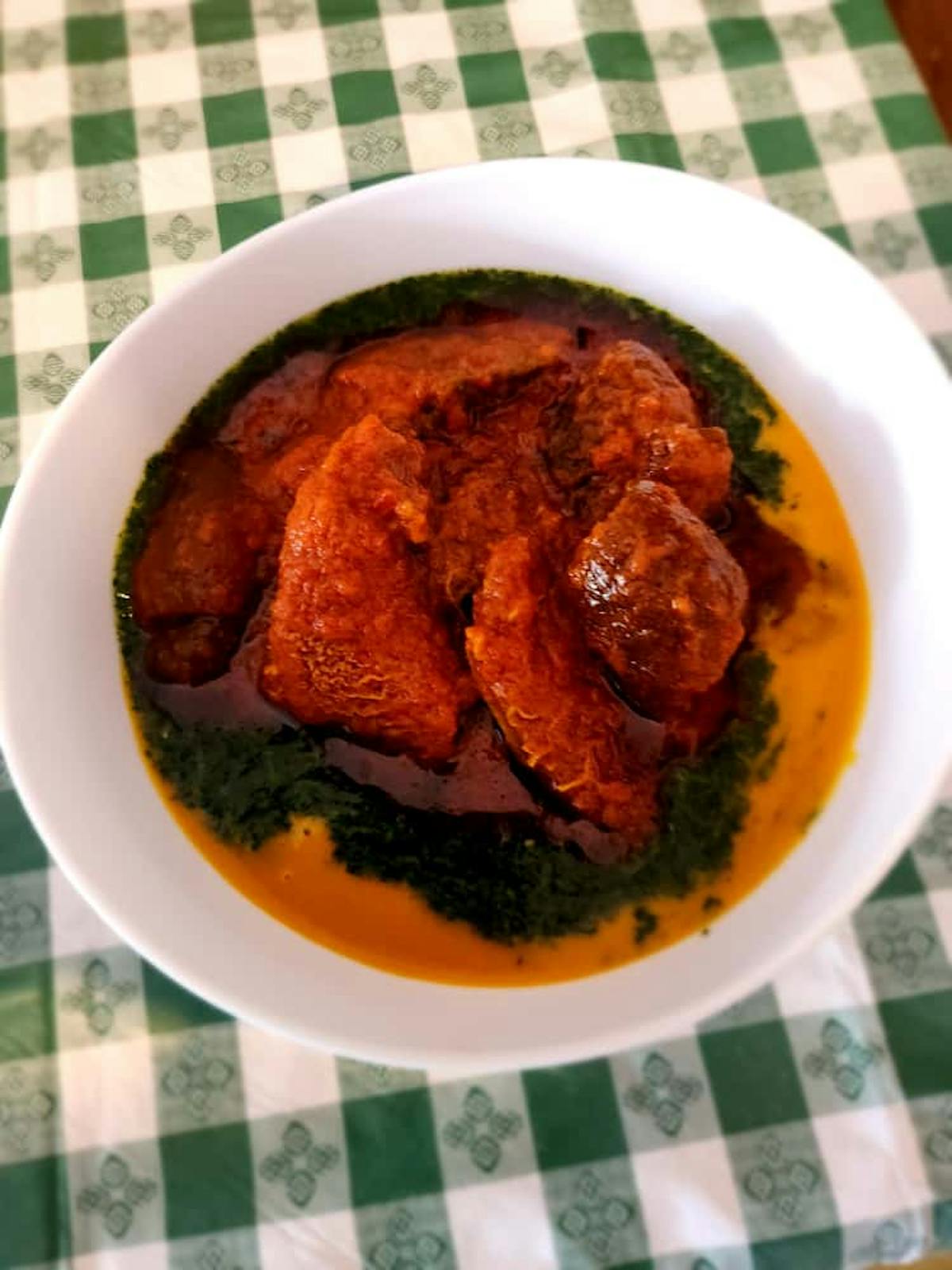The Holy Trinity of Amala and Abula

There’s a traditional Yoruba meal that stands out for its rich brown color and potent, earthy aroma: Amala. It is never eaten alone though, as its true magic is unlocked when paired with the legendary trio of soups known collectively as Abula. This celebrated dish offers a perfect synergy of flavor, texture, and cultural heritage.
1. The Unconventional Staple
Amala, a stiff dough or swallow made from dried yam peel, dried yam flour (elubo), or, less commonly, cassava or plantain flour, differs from the pale, soft texture of pounded yam or semo. The distinctive light-to-dark brown hue is achieved by boiling and rapidly stirring the processed yam flour until it reaches its dough-like consistency, making it perfect for scooping.
2. The Soupy Symphony
Abula, a spectacular combination of Ewedu, Gbegiri, and Omi Obe/Buka Stew, are almost always served together to complement the amala, elevating the meal to an art form.
A. Gbegiri: This rich, creamy soup made from peeled, cooked, and blended honey beans (brown beans) has a comforting, velvety texture, serving as the smooth foundation. And the light seasoning with local spices and palm oil delivers a slightly sweet, nutty flavor.
B. Ewedu: This culinary lubricant made from boiled and blended jute leaves is characterized by its light green color and its famously viscous, slippery texture.
C. Omi Obe/Buka Stew: This light, flavorful red stew made from blended tomatoes, bell peppers, and chili peppers is accompanied by pieces of assorted meat, fish, or chicken. Its spicy kick delivers heat and robust flavor that contrasts with the mildness of the Gbegiri and Ewedu.
3. Texture and Flavor Contrast
The synergy of the smooth, starchy density of amala coated by the slippery texture of ewedu with the creamy, rich gbegiri adding a layer of depth and the fiery, chunky obe providing spice, protein, and a vibrant tomato tang delivers a complete sensory experience.
In Yoruba culture, amala and abula offer a symbol of celebration and community. Serving it at wedding ceremonies, naming ceremonies, and large Sunday gatherings is a sign of generosity and pride. So if you’re in the Newark area, you can get the specialty of Amala-Abula at Ounje Alabeke, where their culinary techniques will leave you craving more.
